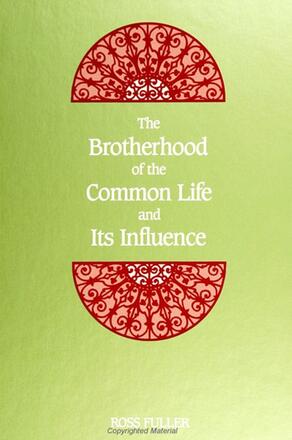
The Brotherhood of the Common Life and Its Influence
Alternative formats available from:
Description
This book presents a lost tradition of inner work, the way of the householder, which was believed by the Brotherhood of Common Life to have been the teaching of the Apostles. It focuses on the emergence, amidst the decay of medieval culture, of "the mixed life," this reconciliation of action and contemplation, as the essential link between Catholic spirituality and Protestantism. The transmission of this work to lay persons seeking the interior dimensions of their lives without withdrawing from the world is presented.
The hitherto monastic spiritual exercises for strengthening attention are discussed in depth. The traditional and vital Christian knowledge of the human condition, which the Brothers and Sisters verified for themselves, is emphasized, especially the crucial significance of the force of attention in the recollection of oneself and God. The importance of strengthening attentive awareness is everywhere alluded to in the sources, but virtually ignored in current accounts of the Christian heritage.
The book traces a transmission of spiritual exercises supported by a strongpsychological base that is strangely familiar to the climate of today's search for meaning.
Reviews
"This book uncovers a missing link in the historical transition from Catholic spirituality to Protestantism and, in so doing, portrays a form of Christian interiority that has strong implications for today's spiritual seeker. A magisterial work—bold, sensitive, and yet, modest. " — Jacob Needleman